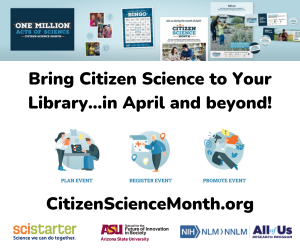The Nation’s First Fully Digital Public Library: How a Texas County Made it Happen
In September 2013, the nation’s first completely digital public library opened in San Antonio, Texas. Named BiblioTech, a play on the Spanish word for library (biblioteca), the building is located on the south side of Bexar (pronounced “Bear”) County. BiblioTech is a county-operated facility that serves the City of San Antonio and Bexar County. Home to 1.7 million, Bexar County completely encircles the city of San Antonio, which is celebrated for the historic Alamo and world-famous Riverwalk, and is now home to the first digital public library.
The small, 4,800-square-foot space boasts 20,000 e-book titles (with a plan in place to increase that number by 10,000 every year over the next five years), 600 e-readers, 200 child-enhanced e-readers, 48 computer stations, 45 iPads, ten laptops, four interactive surface tables, two study rooms, and a small café. What you will not find is one single hardcover or paperback book.
The Big Idea
So how did Bexar County move past other counties and municipalities, many with greater resources, to construct and finance a contemporary version of the public library—all in less than fifteen months? Envisioned by Bexar County Judge Nelson W. Wolff, supported by the other county commissioners, and developed by county staff, this is an account of how county leaders used today’s technology to build tomorrow’s public library.
When most people think of a judge they think of a person in a long, black robe who sentences criminal offenders. In Texas, the county judge plays a different role, one similar to a city mayor. The position traditionally oversees the county’s main departments and services including flood control, roads, emergency management, parks, and the jail. Wolff presides over Commissioners Court, which includes him and four commissioners. Each commissioner is elected from a precinct that represents a quarter of the county’s population. Essentially they are the policy decision-makers on a variety of subjects that affect county residents.
The City of San Antonio and the San Antonio Public Library Foundation are both responsible for funding the public library system. The county, along with other charitable foundations and corporations, also contributes fiscally to the library’s operations.
A Digital Lifeline
After reading the 2011 biography Steve Jobs by Walter Isaacson, Wolff was inspired. “Steve Jobs was not a technician; he was more of an artist. Jobs made sure all his equipment, even the back end of it, was designed just right. That in itself was a real key part of what I learned by reading his book,” said Wolff.1 He was motivated by Jobs’ sense of design and his complete immersion into projects. Wolff’s brainchild was not to replace the city’s library configuration, but to enhance it with a digital-only format. BiblioTech has brightly colored reading rooms resembling an Apple Store with several computer stations and a circulation desk. It is a place where patrons are able to check out e-readers and download ebooks from a cloud library. While this state-of-the-art digital facility offers its library services via the Internet, it also includes rooms for community activities and study groups.
Wolff was determined that Bexar County’s first digital library would first and foremost assist those who had the most challenges accessing digital information. The proposed location was an existing county building that was compliant with the Americans with Disabilities Act (ADA) and was on major bus routes. BiblioTech is located on the south side of San Antonio, an underserved, mostly Hispanic area that is considered one of the most economically disadvantaged parts of the county.
A 2012 survey indicated that 18 percent of responding San Antonio households do not have a computer in the home and 45 percent do not have access to the Internet through a broadband connection. On a national level, a 2013 Pew Internet & American Life Project survey confirmed that smartphone penetration has gone beyond 50 percent of all adult Americans for the first time. It places the figure at 56 percent, up from just 35 percent in 2011.2 Moreover, the number of adults without a mobile phone has dropped to just 9 percent.3 When it comes to mobile technology and books, numbers show Amazon now sells more e-books than hardback books.4
Yet despite these figures, surveys still show that Americans believe libraries remain critical. More than three-quarters of Americans participating in a Pew Research Center poll said that borrowing books, reference librarian services, and free access to computers and the Internet were all “very important” to them.5 By building the library on the south side, the county would be able to provide services to those citizens who were the least likely to have access to this type of technology. BiblioTech’s services would still be available countywide and beyond to residents with Internet access.
Implementation
To get the ball rolling, Wolff first reached out to Krisellen Maloney, dean of libraries at the University of Texas at San Antonio (UTSA). Maloney oversees libraries on the UTSA campuses. One of which, the Applied Engineering and Technology (AET) Library, was recognized by the New York Times and USA Today as the nation’s first academic bookless library on a university campus.6 The AET Library opened in 2010 and was an inspiration to Wolff, who wanted to bring the same kind of digital experience to all county residents.
Wolff was impressed by Maloney’s emphasis on the connection between technology and providing library services, as more than 75 percent of her budget that year was allocated to technology. She became an integral part of BiblioTech’s implementation, from participating in the staff interviewing process to helping choose the e-book provider. She also provided a wealth of information and expertise on a further variety of subjects and now chairs BiblioTech’s advisory board.
After conferring with Maloney, Wolff pitched the concept to Bexar County’s top management and what happened next is a true testament to what government can do when inclusive collaboration takes place. “What is unique about Bexar County is the system of power that was created by hiring a county manager. This position only exists in maybe one other county in the whole state of Texas. This leadership allowed the library project to consolidate power,” said Wolff.7 According to Wolff, having the county manager oversee all the different departments collectively was a defining element of BiblioTech’s timeline. With no focus on individual agendas, the team was highly organized and quick to respond. The time saved by not being required to get approval from multiple levels of management and filtering information where it was most needed was immeasurable.
Another part of the project that allowed it to get off the ground so quickly was the county’s decision to make an exception to the Request for Proposal (RFP) process, which is a county standard. The RFP bidding process systematically allows the county to obtain the best available pricing for commodities and professional services. The county ensures a competitive procurement process, while also encouraging small, minority, and women-owned businesses to participate. From advertising the proposal to awarding the selected vendor, the RFP process at a minimum takes sixty to ninety days to complete. The county’s decision to act as the construction manager and use internal professional staff enabled them to forgo the RFP process.
Fundraising
Funding this type of project in today’s economy, with escalating government cutbacks, was a challenge. The Hidalgo Foundation of Bexar County played a key role in that arena. The Hidalgo Foundation is a nonprofit organization created in 2001 to assist with projects that solely benefit the county and its residents.
The $2.4-million BiblioTech was much less expensive to build than a traditional public library since the usual space was not required. In comparison, the City of McAllen (Tex.) spent $24 million in 2012 transforming an abandoned Walmart into the city’s public library. It was an upgrade from the city’s old 40,000-square-foot main library. BiblioTech had a much different cost estimate. The space required for shelves, books, and physical storage was simply not needed. The county also had startup money from savings acquired from other capital projects. But when additional capital was needed, Wolff asked the BiblioTech team and the Hidalgo Foundation to raise some private funds. More than $500,000 in private donations came in. Some of the generous donors included Toyota Motor Manufacturing Texas, The Greehey Family Foundation, and Spurs Sports & Entertainment.
Building
The project’s timeline again was a motivating factor when it came to the county’s decision to act as its own contractor; an undertaking never before attempted in its 100-year-plus history. The timeline was essential because Bexar County not only wanted to be the first digital public library, but also wanted to be operating by the start of the 2013-14 school year.
One of the most important duties of a general contractor is to direct the sequence of construction, which, if done correctly, can guarantee shorter timelines. Serving as its own contractor, the county was also able to select subcontractors from the Texas Multiple Award Schedule (TXMAS). This program compiles a list of existing competitively awarded government contractors that cater to the procurement needs of the state of Texas.
Betty Bueche, Bexar County director of facilities & parks, led the construction teams as the general contractor and Dan Curry, the county capital projects manager, acted as the jobsite supervisor. While this construction management team had extensive experience and expertise, it had little foresight into how a project like this should work. “I think with BiblioTech there was unlimited potential. This was the first time it had been done and the future impact had yet to be determined. It truly was a ‘transformation project’ for the community. It redefined the kind of service counties are willing to provide to their constituents,” said Bueche.8
BiblioTech’s interior design also played a major role in creating the kind of experience the county wanted to offer to patrons. The relationship between Bexar County and Muñoz & Company was a key component of BiblioTech’s design. “We were able to get Muñoz [& Company] to go in for free and develop the artistic design that we wanted. We told them what we were looking for . . . something that was different . . . something that represented the artistic design for this kind of space. They also came up with the name,” said Wolff.9 The space’s design included clean lines and bright colors. Laura Cole, special projects coordinator for the county, agreed that BiblioTech’s surroundings needed to correspond with its technology. “Not only does the space need to be aesthetically pleasing, and one in which patrons would want to spend time, the design needed to be functional for the technology,” said Cole.10
A Twenty-First Century Library
Without question, libraries in the twenty-first century will continue to focus on creating community meeting spaces and
being identified as learning centers versus being that place that houses large book collections. With today’s technology and social media demands, the days of card catalogs and bookshelves to the ceiling are most likely behind us. Today’s library patrons want interactive technology, enhanced power connections, and modern spaces to match their leading-edge technology. That’s all in the event they even want to leave the house. Now more than ever, people have 24/7 access to the Internet. E-readers allow owners to check out books whenever they want—any time, day or night. In today’s world with the amount of mobile technology available, hours of operation literally do not exist for some. And people are definitely using the technology that’s out there. Despite only being launched within the last ten years, iPad in 2010 and iTunes in 2003, both are part of many people’s regular daily routines. Technology also brings with it an excitement of what is possible and what has the potential to improve lives. This kind of enthusiasm can turn a simple project into something that has the potential to go beyond anyone’s expectations.
“BiblioTech energized a lot of county employees. It was a highly visible undertaking that lifted up our employees and gave them something new and different to do, not the everyday stuff they’re used to. When you give people the chance to do new things, many of them will step up and completely surprise you with how hard they work,” said Wolff.11
Every new visitor to BiblioTech is welcomed and offered a personal tour. If the visitor is a county resident they are offered
a library card at the end of the tour and additional one-on-one time with staff until they become familiar with the technology. Out-of-town visitors are offered a guest pass so they can utilize the software and see how everything works. Everyone is shown how to download e-books to their own readers/devices or onto one of e-readers you can check out. The bilingual staff also offer individualized technology assistance to seniors and anyone with special needs. The BiblioTech staff says that for all that the library has given to its patrons, they have also been given some unforgettable memories in return.
Cole relayed a story about a young family’s recent visit, during which a twentysomething father revealed that the e-readers were of no use to him, because he could not read. “One of our staff offered him a children’s reader, which is enhanced with activities that help with learning how to read,” Cole said. “He started shaking, and his wife couldn’t stop crying. It was a really profound experience for him and the staff.”12 BiblioTech’s current project is the mailing of 8,000 personal letters to the men and women serving in the armed forces who are from Bexar County. In each envelope, a library card with their login information will be included so they can download their own e-books. Bexar County also offered residents help signing up for coverage under the Affordable Care Act (ACA) at BiblioTech. The free assistance was available through the end of March 2014. Former U.S. Secretary of Health and Human Services Kathleen Sebelius visited BiblioTech in February, 2014, to promote the program.
Another partnership includes Mothers and Their Children (MATCH) which began in 1984 to give incarcerated mothers more opportunities to interact with their children. BiblioTech is now providing e-readers and tablets for these mothers to use during visits with their children to read to them, and additional time to study parenting books.13 BiblioTech has already expanded since opening in September 2013. The first satellite location opened in March 2014 in the County Courthouse Central Jury Room. This is interesting in and of itself, as this new library technology can now be found within the oldest continuously operating historic courthouse in Texas.
Library services have expanded with the addition of Hoopla Digital, which allows patrons to access television shows, movies, music, and audiobooks for free with BiblioTech registration. Patrons can choose from more than 7,000 digital comics and graphic novels. Mango Languages offers 61 different foreign languages and 16 English courses to learn in your spare time. You can utilize Atomic Training and brush up on your computer skills with 85 different tech tutorials. Or you can browse more than 70 popular magazine subscriptions.
Since its opening, BiblioTech has averaged 300 walk-ins per day, which will equal more than 100,000 visitors in its first year. During the same time period 25,743 e-book titles have been c/hecked out, along with 3,069 e-readers.14
BiblioTech currently has seventeen employees, six of whom are full-time. BiblioTech’s core staff includes the head librarian, branch manager, assistant branch manager, IT manager, special projects coordinator, and a community relations liaison. The head librarian is Ashley Eklof. Eklof was hired several months before the library opened. She was an integral part of the implementation because she had the traditional librarian’s point of view, but in a completely non-traditional environment. “I do not miss having to hunt the stacks for a book that was misplaced, or finding a returned book that has been damaged. In a digital library, the entire collection is available at my fingertips, at all times, and will stay in mint condition for years to come,” said Eklof.15
As the first head librarian of a digital public library, Eklof had an opportunity that few librarians, if any, ever have: she was able to assemble the library’s entire book collection. “It is not often that librarians are presented with the opportunity to build an entire collection of books and resources from scratch,” she said. “In addition to developing a collection of core materials, I pay special attention to the needs of the community and the materials that are requested.”16
What is also unique about the digital library environment is that when staff members are not required to maintain large spaces and book collections it allows for more patron interaction. “I appreciate the fact that our staff spends more time face-to-face with visitors than processing physical materials. It allows for more opportunity to build relationships and acquaint first-time visitors with our collection, resources, and technology,” Eklof said. “In addition to providing reference services and technology assistance, we place a high level of importance on our customer service.”17
Either way, the technology is forcing public libraries to redefine their scope of services. Other attempts to develop fully digital public libraries in Arizona (in 2002) and California (in 2011) ultimately failed when patrons demanded to keep access to physical books. Maybe the key is not to replace the infrastructure, but instead utilize the technology by creating a whole new model like Bexar County did with the digital format. BiblioTech will undoubtedly be part of the history we read about when it comes to the establishment of digital libraries. We will have to see what happens, but this is for certain, the institution of the public library is transforming. People will have to either adapt with changing technology or the public library, as we know it, may not survive.
To learn more about the BiblioTech model or to take tour of the facility, contact Laura Jesse, Bexar County Public nformation Officer, at (210) 335-0073 or ljesse@bexar.org, or visit http://bexarbibliotech.org.
References
- Nelson W. Wolff, Bexar County Judge, personal interview with the author, July 28, 2013.
- Mark Rogowsky, “More Than Half of Us Have Smartphones, Giving Apple and Google Much to Smile About,” Forbes.com, June 6, 2013, accessed Apr. 8, 2014, .
- Ibid.
- David Vinjamuri, “Why Public Libraries Matter: And How They Can Do More,” Forbes.com, Jan. 16, 2013, accessed Apr. 8, 2014.
- Ibid.
- University of Texas at San Antonio, “About the UTSA Libraries,” accessed Apr. 8, 2014.
- Wolff, personal interview with the author, July 28, 2013.
- Betty Bueche, Bexar County director of facilities and parks, phone interview with the author, Aug. 2, 2013.
- Wolff, personal interview with the author, July 28, 2013.
- Laura Cole, BiblioTech special projects coordinator, personal interview with the author, Aug. 3, 2013.
- Wolff, personal interview with the author, July 28, 2013.
- Cole, personal interview with the author, Aug. 3, 2013.
- Mark D. Wilson, “BiblioTech Brings Tech to Incarcerated Mothers,” San Antonio Express-News, Mar. 20, 2014, accessed Apr. 15, 2014, .
- Laura Cole, BiblioTech, Bexar County Digital Library, PowerPoint presentation, TLA Netherlands, March 2014.
- Ashley Eklof, BiblioTech head librarian, personal interview with the author, Apr. 4, 2014.
- Ibid.
- Ibid.
Tags: Digital Literacy, Digital Public Library of America, digitization







